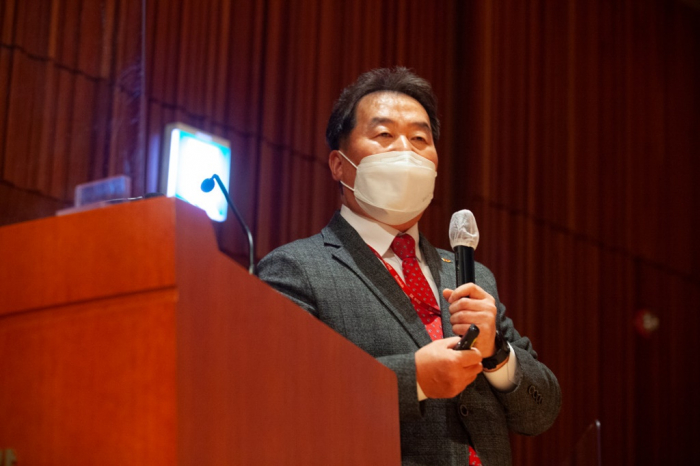Corporate strategy
SK Chemicals to invest $1.6 bn in green, biopharmaceutical sectors
The company plans to replace copolyester’s raw materials with recycled plastics, expand ethical drug business
By Mar 28, 2022 (Gmt+09:00)
1
Min read
Most Read
LG Chem to sell water filter business to Glenwood PE for $692 million


Kyobo Life poised to buy Japan’s SBI Group-owned savings bank


KT&G eyes overseas M&A after rejecting activist fund's offer


StockX in merger talks with Naver’s online reseller Kream


Mirae Asset to be named Korea Post’s core real estate fund operator



South Korea’s SK Chemicals plans to invest more than 2 trillion won ($1.6 billion) in eco-friendly material and biopharmaceutical businesses.
The unit of the country’s third-largest conglomerate on Monday unveiled plans to transform its oil-based plastic business into a recycled plastic one and expand its biopharmaceutical business with a target to generate sales of 4 trillion won by 2025.
“We will raise investment funds of more than 2 trillion won to set up a production infrastructure for green material and bio businesses,” said SK Chemicals CEO Jeon Kwang-hyun at a general shareholders' meeting.
The company aims to report sales of 1.6 trillion from the eco-friendly material business, 1 trillion won from the bio sector, 1 trillion won from the biodegradable business and 200 billion won from the existing functional material business by 2025.
For the green material business, SK Chemicals plans to replace copolyester’s raw materials with 50% recycled plastic by 2025 and 100% by 2030. Copolyester, a highly transparent plastic material mainly used in cosmetic containers, accounts for about 60% of the company’s sales. It plans to raise the material’s production capacity to 300,000 tons by 2025 and 450,000 tons by 2030.
In the biopharmaceutical sector, the company will expand its ethical drugs business, including medicines for musculoskeletal disorders and nervous system diseases.
Write to Jeong Min Nam at peux@hankyung.com
Jongwoo Cheon edited this article.
More to Read
-
 Mergers & AcquisitionsLotte Chemical seeks to acquire Japanese specialty chemical firms
Mergers & AcquisitionsLotte Chemical seeks to acquire Japanese specialty chemical firmsNov 22, 2021 (Gmt+09:00)
3 Min read -
 PetrochemicalsDL Chem to spend $2 bn on petrochemical expansion
PetrochemicalsDL Chem to spend $2 bn on petrochemical expansionSep 12, 2021 (Gmt+09:00)
3 Min read
Comment 0
LOG IN


